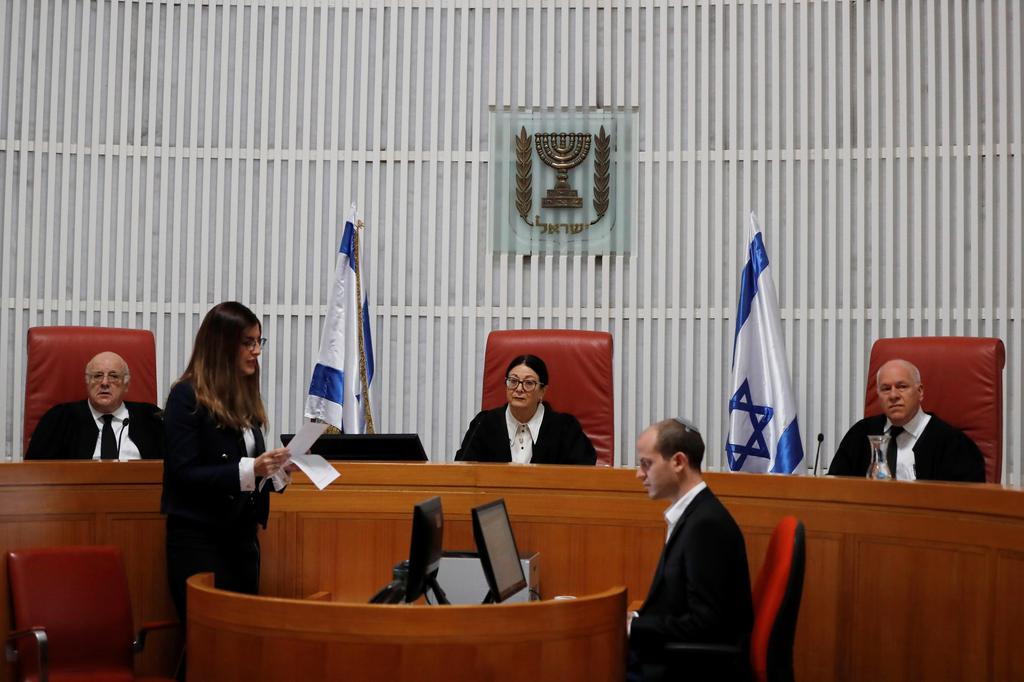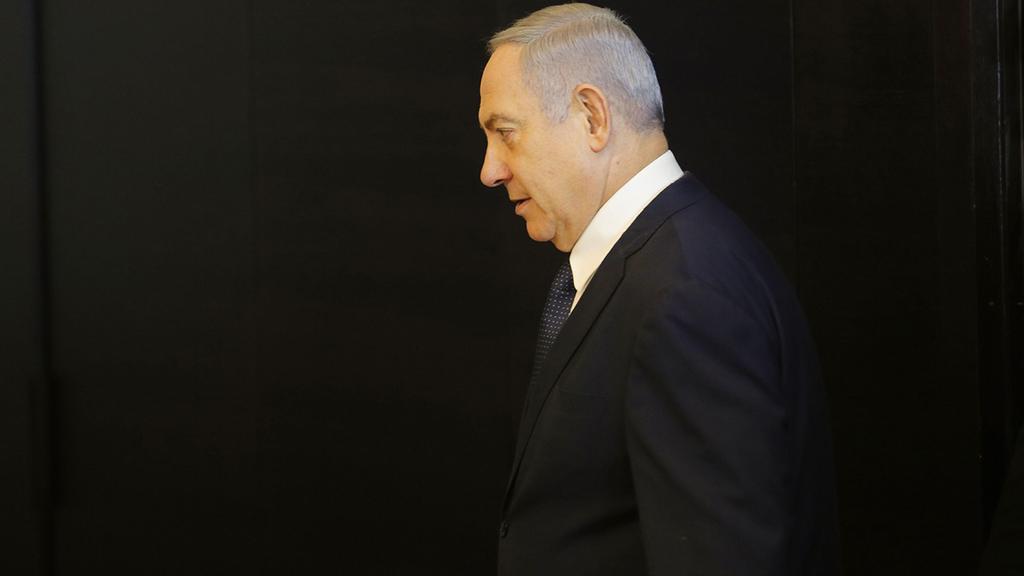Getting your Trinity Audio player ready...
The High Court of Justice ruled Thursday it will not give its opinion on whether an indicted parliament member can form a new government, effectively giving way to Prime Minister Benjamin Netanyahu to establish a coalition if he emerges victorious after the March 2 elections.
Israeli law requires cabinet ministers and mayors to resign if indicted but does not specify so for a sitting prime minister. There are no restrictions on Netanyahu to run in the unprecedented third elections in less than a year, but good governance groups petitioned the court, claiming he could not be tasked with forming a new government.
2 View gallery


Chief Justice Esther Hayut, Deputy Justice Hanan Melcer and Justice Uzi Vogelman
(Photo: Reuters)
Chief Justice Esther Hayut, Deputy Justice Hanan Melcer and Justice Uzi Vogelman, who presided over the hearing, threw out the petition, ruling it to be highly hypothetical.
“At this time, it is theoretical and premature.”
The court said that the election campaign period is a "realm of uncertainty" and that it remains to be seen who the president will select to form a government after the March 2 vote. The judges said that in light of the "most sensitive and complicated period the state of Israel is in at this time," it decided to "act with restraint and moderation" and dismiss the petition for the time being.
"The issue raised in the petition is fundamental and concerns the principle of the rule of law, the integrity of elected representatives and public confidence in government institutions. Thus, it touches on the core values on which our judicial system is based,” said the ruling.
"However, according to the electoral system in Israel, the public votes for party lists and not for potential candidates to become prime minister."
The court emphasized the prime minister is eligible to run in the upcoming elections as the leader of the ruling Likud party since there are no laws that prohibit him from doing so, regardless of the concerns stated in the petition.
The hearing comes just a day after Netanyahu said he will seek immunity from the corruption charges against him, delaying the prospect of a trial until the elections when he hopes to have a parliamentary majority coalition that will shield him from prosecution.
The request for immunity is likely to languish under the current parliament. Normally, a request for immunity would need to be approved by a parliamentary committee and then submitted to a full vote. But the committee charged with handling such matters doesn’t exist because a government was never formed after September’s election. The attorney general cannot file the indictment until the question of immunity is settled, delaying any court proceedings.


